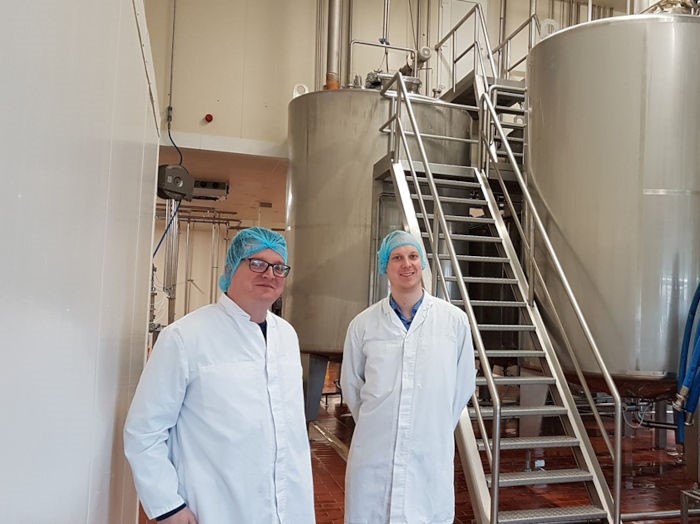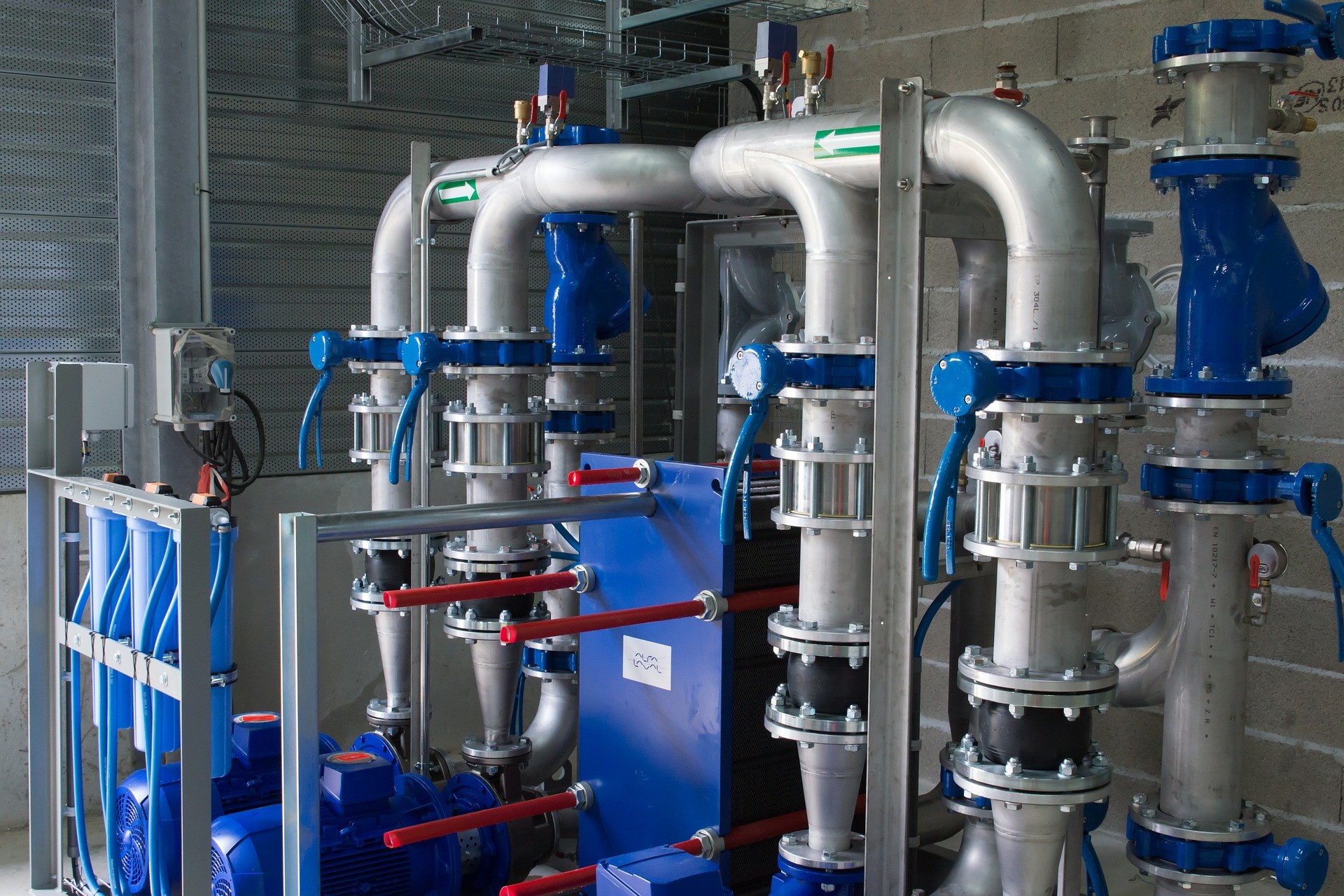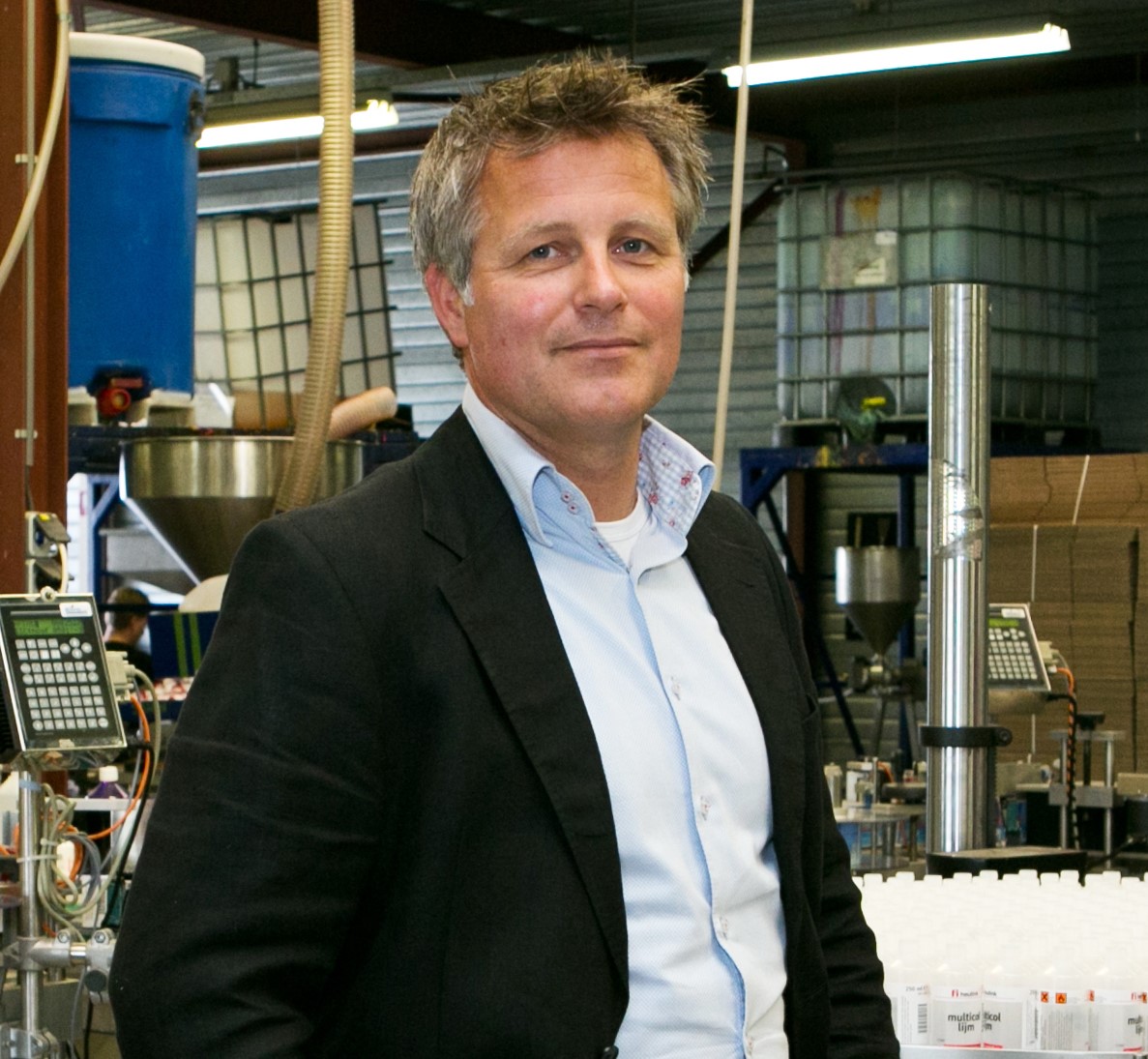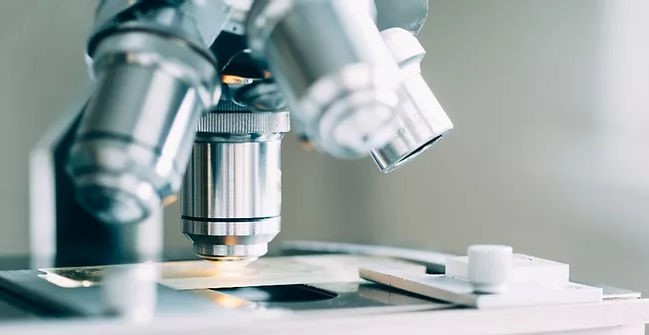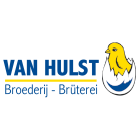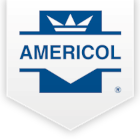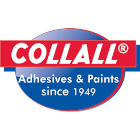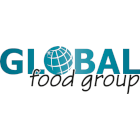Disinfection of process water
✓ Effective against biofilm, biofouling and microbiologically induced corrosion (MIC)
✓ Effective against e.g. listeria, pseudomonas and salmonella
✓ Without the use of expensive chemicals: Fully biodegradable
✓ Safe to use
Replace expensive and harmful chemicals with a system that allows you to make a sustainable and proven effective disinfectant yourself on site. This means that you are assured of structurally germ-free water.
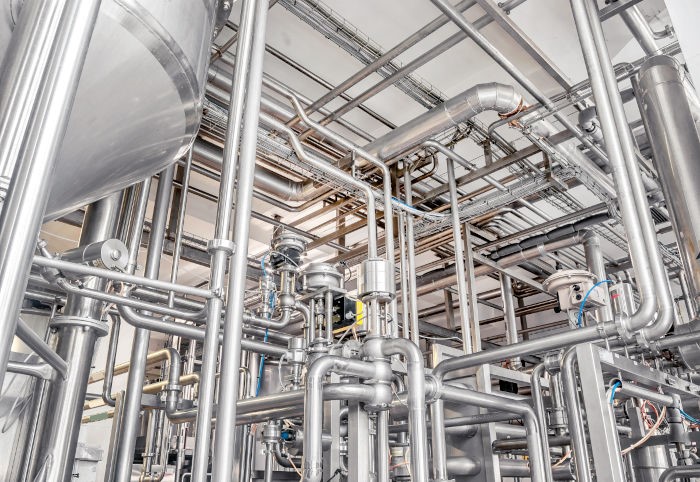
Bert Blaauw - Frisian Egg
"No chemicals required to get rid of biofilm in our process water"
Over the years, biofilm has developed in our pipework. We rinsed with chemicals at regular intervals, but these always seemed to have a temporary effect.
Quality Manager Bert Blaauw of Frisian Egg in Drachten was looking for a structural, effective disinfection method. The Watter system was the solution for him.
Watter is active in the following sectors, among others
What is process water?
We define process water as the water used in the factory process. Forms of process water are for example
- Rinse water, for cleaning the product;
- Water that is used (e.g. under high pressure) for cleaning machines and areas used in the production process;
- Cooling water, which is the water used to cool the product or the machines;
- Water that is used for transportation of products;
- Water used in products as ingredient.
Because the water comes into contact with the product, or at least the production process, you want it to be free of bacteria, viruses, mould and yeasts. This prevents premature loss and bad smell and/or taste. This explains the importance of germ-free process water.
“Clean water guarantees our quality”
'At Collall, we produce glue and paint products, among which those with water as a base and for the majority of elementary schools in the Netherlands,' CEO Patrick van Rhijn explains. 'As a result, the quality control is very important in our production process. We used to have a lot of yeasts in our raw materials. It made the the packages bulge and the products stink badly.'
'By using Watter, we have optimalised our prouduction process, which made us have next to no more loss of quality. We are now able to exlude yeasts and other micro-organism in our production lines. It is safe and easy to use and I can recommended to any other producer that deals with water.'
Independently scientifically tested
All our solutions have been independently tested for efficacy in accordance with standard (EN) tests and are suitable, among other things, for the disinfection of:
-
Bacteria (EN 1276)
-
Yeasts and fungi (EN 1650)
-
Viruses (EN 14476)
-
Surfaces (EN 13697)
-
Spaces (EN 14349)
-
Medical instruments (EN 14561)
-
Water systems (EN 13623)
- Hands (EN 1500)
Watter is officially registered as an active substance and product supplier on the European Article 95 list for disinfectants (PT1-5). Inclusion in the article 95 list is a condition for compliance with European Biocide Legislation.
![]()
Frequently asked questions about the HOCI disinfection system
How effective is hypochlorous acid (HOCl) in disinfecting process water compared to other methods?
Watter disinfection solution (WDS) is an alternative to conventional agents such as hydrogen peroxide, peracetic acid, chlorine dioxide and sodium hypochlorite. WDS is highly effective at low concentrations, as low as 0.05 ppm. Compared to sodium hypochlorite, it can be dosed 100x lower for equal effectiveness.
Is HOCl safe for our process equipment and materials?
HOCl is oxidative and therefore causes corrosion (rust) of metals. But because HOCl is already highly effective in low concentrations, corrosion is minimal.
Are there independent test results that support the effectiveness of the Watter system?
Our solution has been independently tested for efficacy in accordance with standard (EN) tests. This has demonstrated effectiveness on bacteria (EN1276), Yeasts and fungi (EN 1650), Viruses (EN 14476) and water systems (EN 13623), among others.
Do you have experience with our situation/business case?
The Watter system provides reduction of microorganisms in process water. This has proven effective within the food industry, chemical sector and cosmetics. For a comprehensive list of sectors of our customers, please see this project overview.
Are PPE required when using HOCl / Watter?
No, no PPE is required when using HOCl. It is also not registered on the hazardous materials list.
Does HOCl comply with regulations for use in process water?
Yes, Watter is officially permitted by the Ctgb and is registered as an active substance and product supplier on the European Article 95 list for disinfectants (PT1-5).
What certifications does the Watter system have?
The watter system has the following certifications:
ISO 9001 - Quality management systems.
AQAP 2110- NATO Quality Assurance Requirements for Design, Development and Production.
ISO 13485 - Medical devices
ISO 14001 - Environmental management systems
IPC-A-610 - Acceptability of Electronics Assemblies
IPC/WHMA-A-620 - Requirements and Acceptance of Cable and Wire Harness Assemblies
How does the cost effectiveness of HOCl compare to other disinfection methods?
The Watter system requires only water, salt and power. So it is a one-time investment, after which costs remain low. This saves on the repetitive purchase of expensive chemicals.
What is required to implement the Watter system in our plant?
The Watter system must be placed in an adequately ventilated room. In addition, it must be connected to tap water and electricity.
What technical support and training will be provided during implementation?
The Watter system will be installed by a Watter-approved technician. After that, one of our microbiologists will guide you in putting the machine into operation.
Are there any specific modifications required to our water lines or storage tanks?
No, HOCl is very effective in low concentrations, therefore most materials can withstand it.
What impact will the installation have on our ongoing production?
The installation of the Watter system can take place during ongoing production. The subsequent implementation in the process will be done in cooperation with you to cause as little disruption to the process as possible.
Can we eliminate the cost of PPE when using HOCl / Watter?
Yes, provided you are not using other agents that do require PPE.
How will the dosage and effectiveness of HOCl be monitored?
Before installation, you will be supervised by one of our microbiologists. In consultation with you, we will examine how the effectiveness can be determined, for example by determining germ counts. Subsequently, the dosage will be adjusted accordingly.
How much maintenance does the Watter system require?
The salt supply needs to be replenished on time. In addition, the water filter and air filters should be replaced/cleaned periodically.
Are service contracts available?
Yes, after the warranty expires, you can enter into a service contract.
How are malfunctions monitored and resolved?
The status of the system is visible through lights on the top. In case of a malfunction, you can call our Technical Service Department, they will help you fix the malfunction or come by to make repairs.
Guarantee the optimal microbiological quality of your process water
Whitepaper: Process water
Germination in drinking water can be the cause of quality losses and undesirable odours and flavours, among other things. Besides cleaning, disinfection steps are also necessary. In this white paper, you will find explanations and tips about clean water on your farm.




